In review
Posted by David Kunz on May 04, 2017
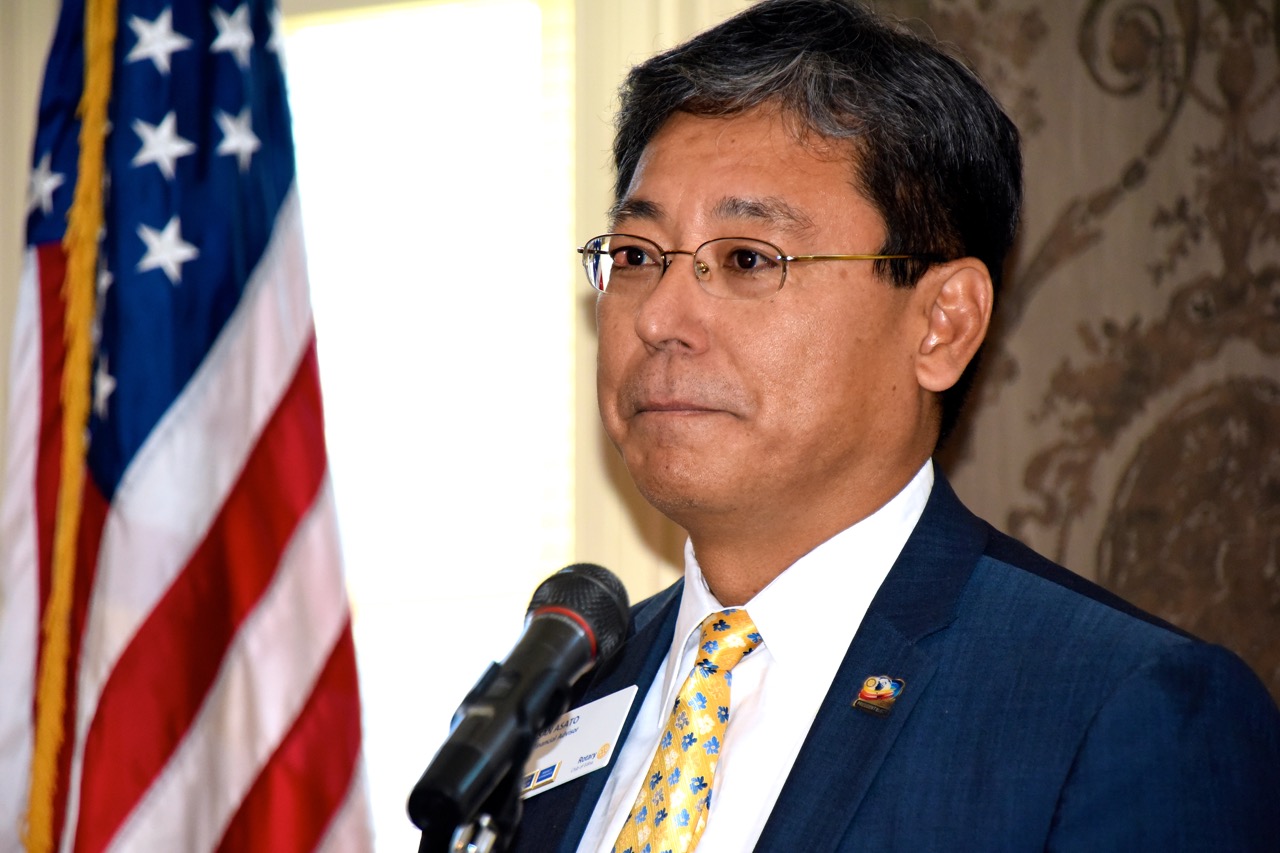
President-Elect San Asato ran the meeting May 4, where the program speaker was Dr. David Odde from the University of Minnesota's Biochemical Engineering Department. Rotary Youth Exchange student Claudio Araya Huerta gave his country talk, telling us about Chile. Our final two Edina High School student visitors told us a bit about themselves and their plans for the fall. And a Edina Rotary Foundation grant was given to Oasis for Youth.
Click on the link for more on the meeting...
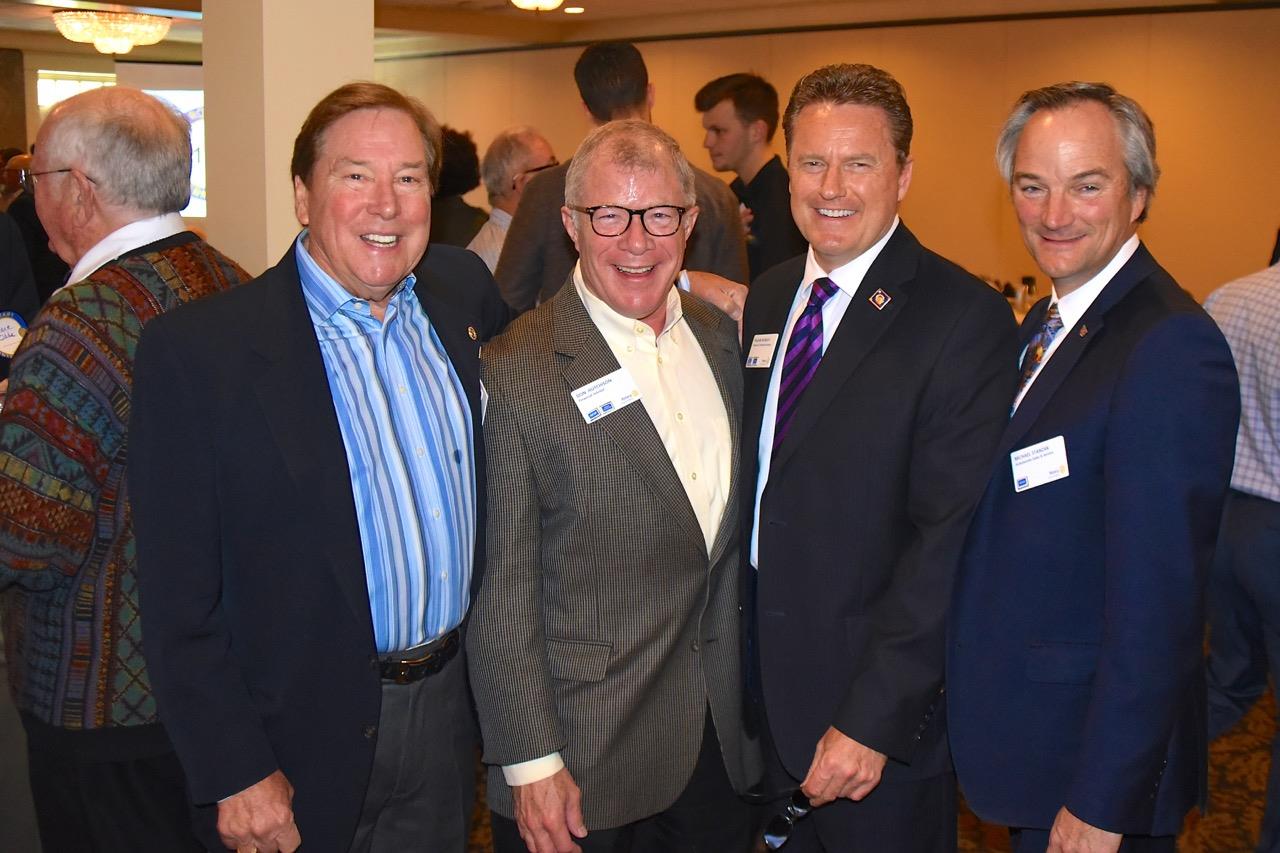
San Asato, doing a trial run for his upcoming presidency, called the meeting to order. He thanked all the members who helped with the meeting today:
- Skip Thomas, Sam Thompson and Mark Stageberg were greeters.
- Tom Bach was helping at the front desk.
- Dan Hallberg led us in the invocation and pledge.
- Frank Cardarelle introduced all guests and visiting Rotarians.
There are two upcoming volunteer opportunities:
- Cornerstone meal prep/service—Tuesday, May 30, from 4 to 7 p.m. looking for 20 volunteers.
- Park Clean Up—9 a.m. May 20th. The more the merrier.
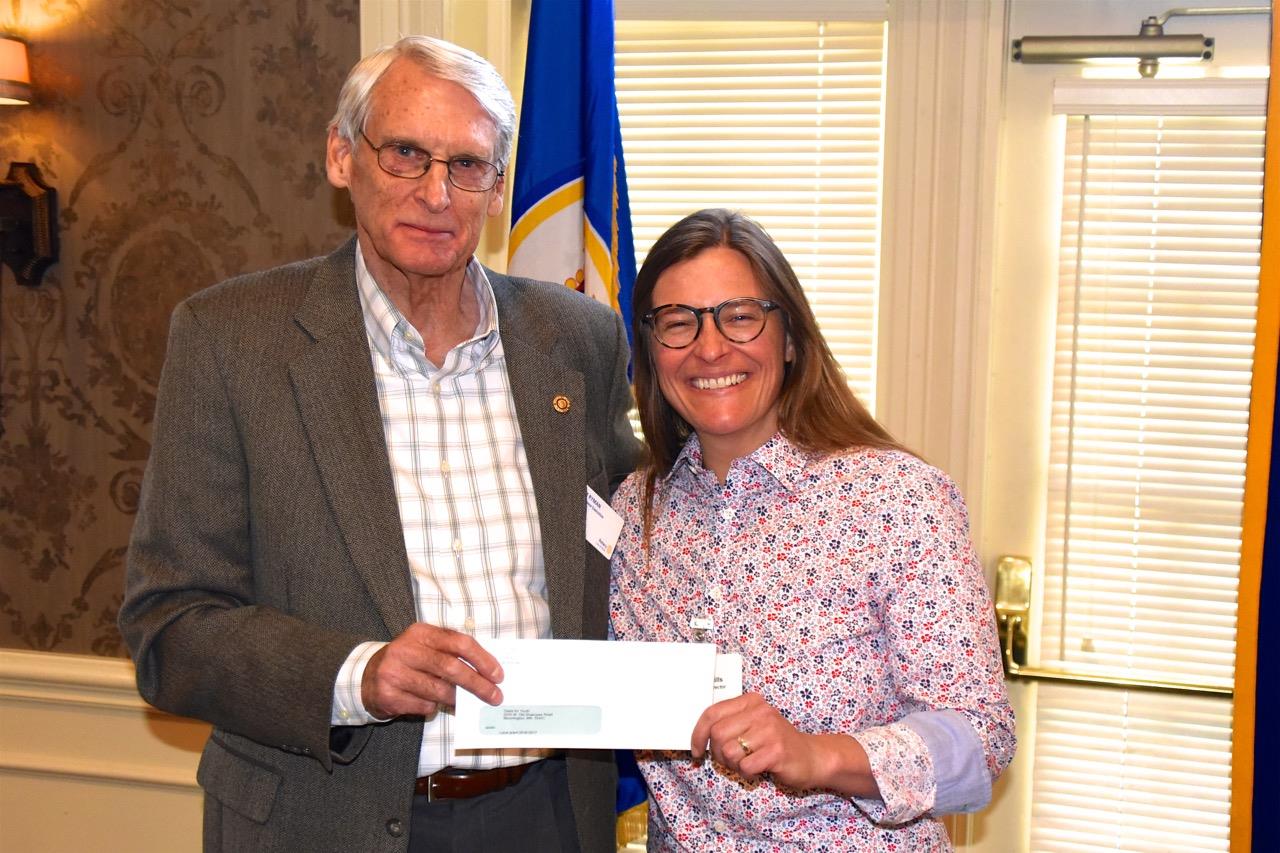
Nicole Mills, executive director for Oasis for Youth, accepted a Edina Rotary Foundation grant check from Jim Ryman, a member of the Community Service—Local Funding Committee. Her organization helps homeless kids and adults (aged 16 to 24) find shelter, food, life skills, etc.
Sandy Schley was recognized as receiving the “Service Above Self” Award from Rotary International! Congrats Sandy, well deserved!
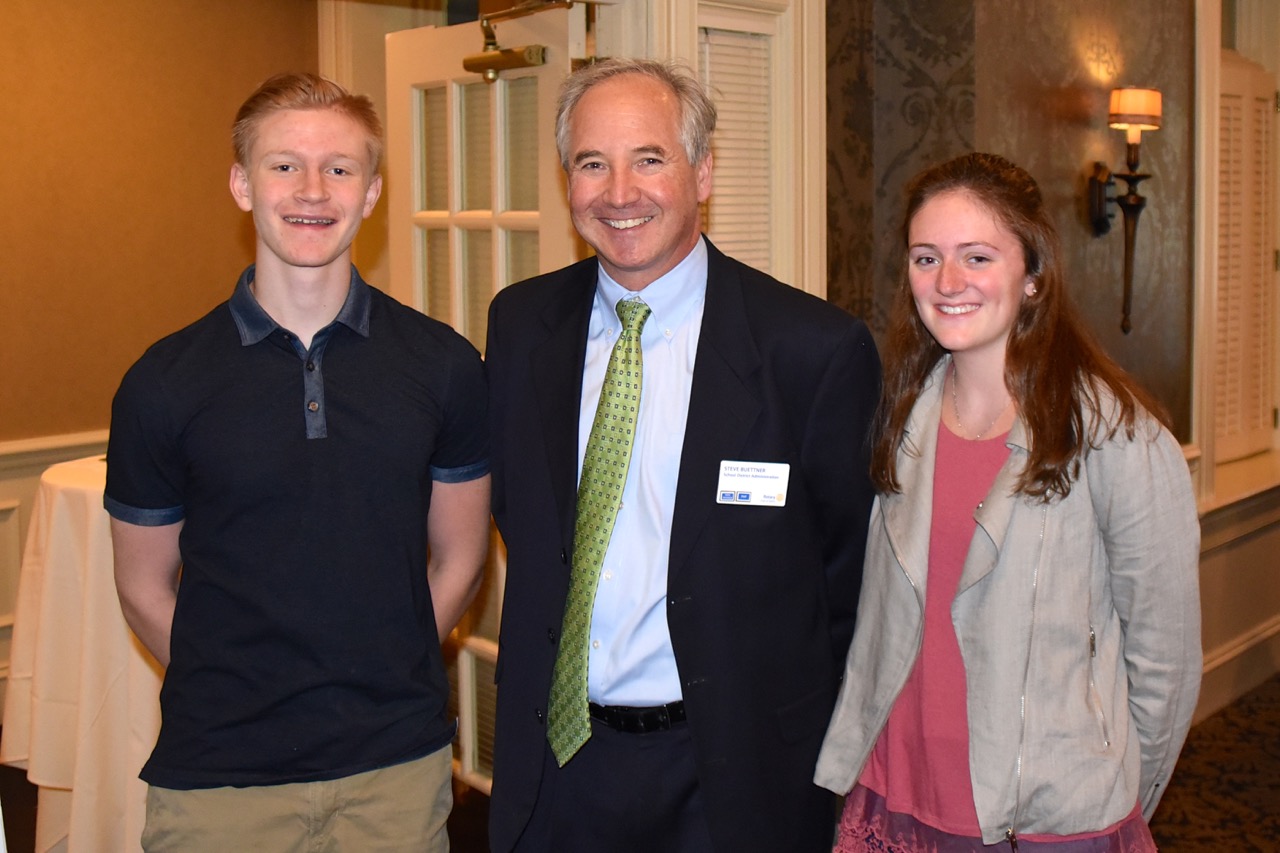
Steve Buettner introduced our two Edina student guests, Zach Zamoff and Sophia Anderson. They gave us a short bio and talked about their future plans.
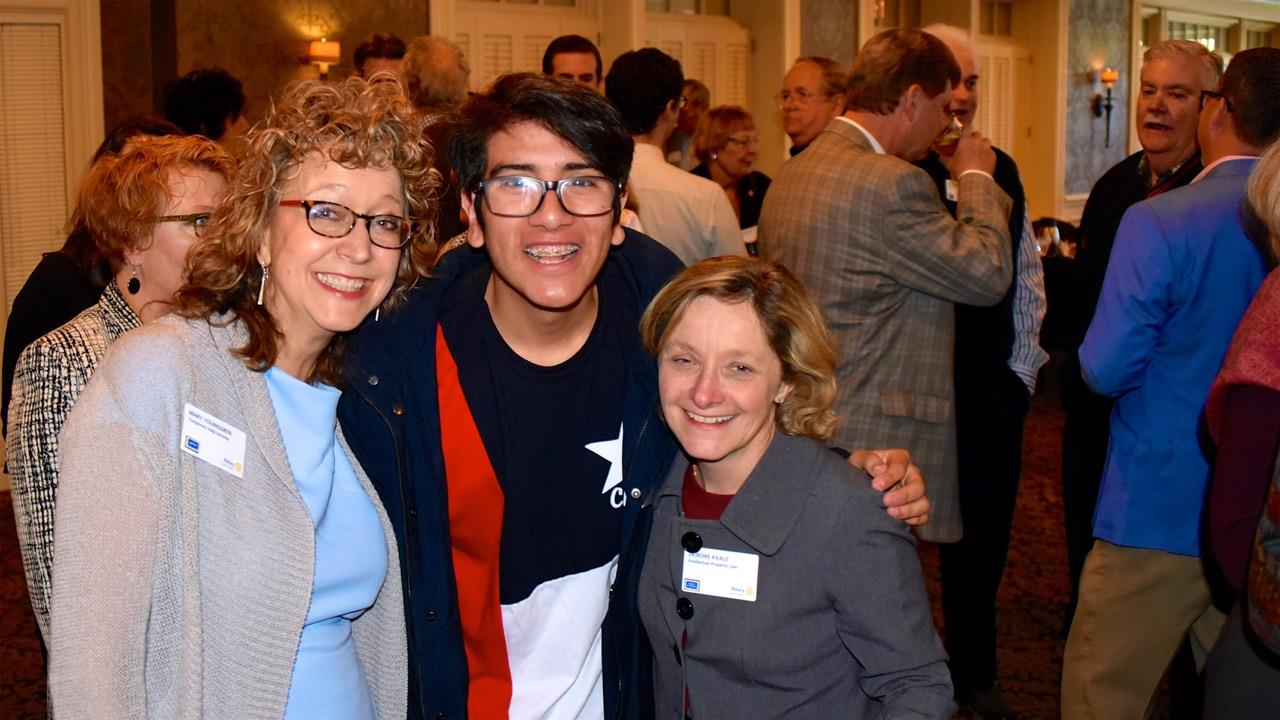
Claudio Araya Huerta, our Rotary Youth Exchange student, gave us a short, enlightening presentation about his home country of Chile.
Les Wanninger introduced our guest speaker, Dr. David Odde. Dr. Odde, a Minnesota native, attended St Olaf for two years and then went to the University of Minnesota. He received his graduate degrees from Rutgers University in chemical and biochemical engineering. In 1999 he came back to the U of M. He and his wife, Beth, have two children. Below is my attempt to explain his presentation in a couple of paragraphs:
Dr. Odde spoke to us about cell migration and how it relates to cancer. It is one of the fundamentals of understanding cancer and how it spreads. Cell migration is an integrated mechanochemical process that enables a cell to crawl through it’s environment. In doing so, normal immune cells are able to crawl through tissues on search and destroy missions to fight off infections. On the darker side, migration also allows cancer cells to spread in our body. Either way, it is important to understand the physical basis of all cell migration, so that we can control it for therapeutic purposes. Computer models are used to predict the dynamics of cell migration.
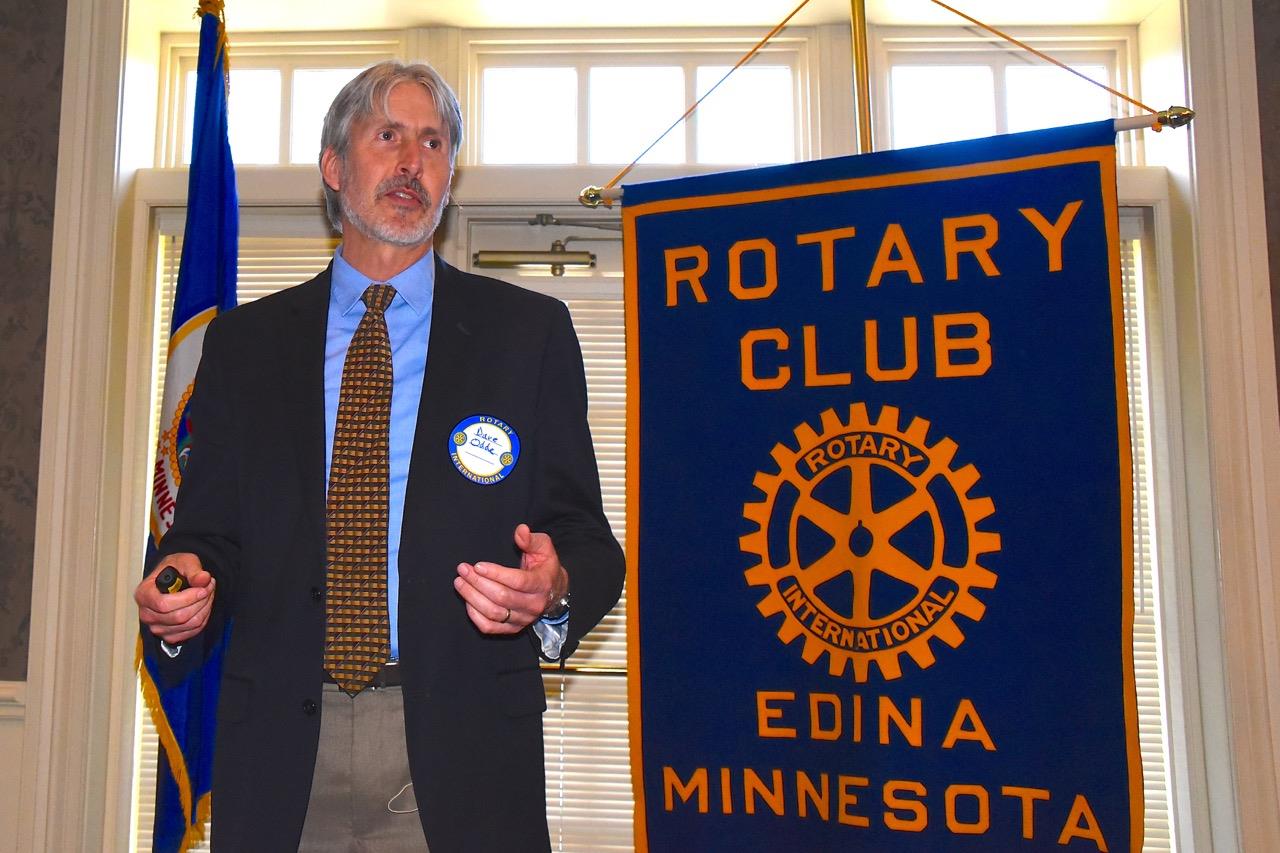
Dr. Odde and the University of Minnesota are part of the Physical Sciences Oncology Network. The National Cancer Institute initiative was started to establish research projects that bring together biologists and oncologists with scientists from the field of physics, mathematics, chemistry and engineering to address some of the major barriers in cancer research.
After an extremely informative presentation and many questions, Rotarian Jack Atnip thanked our speaker.